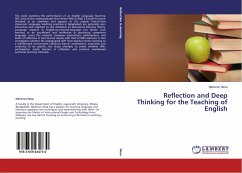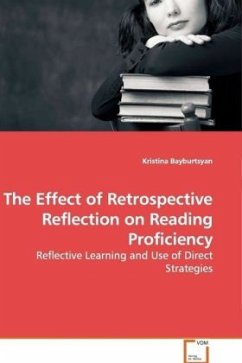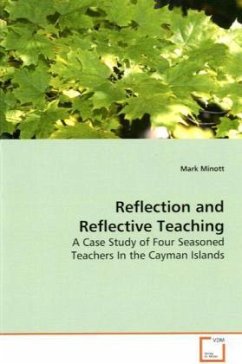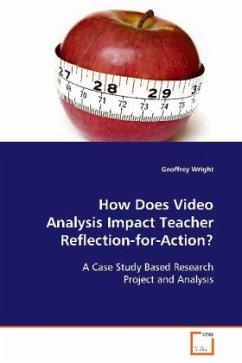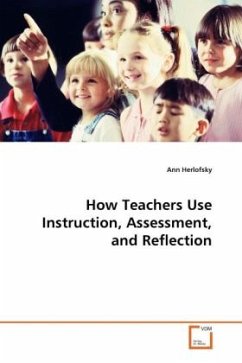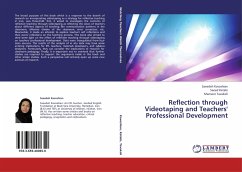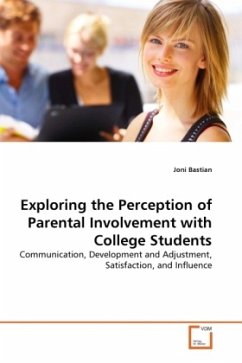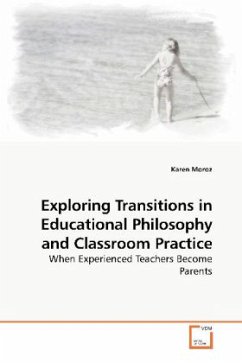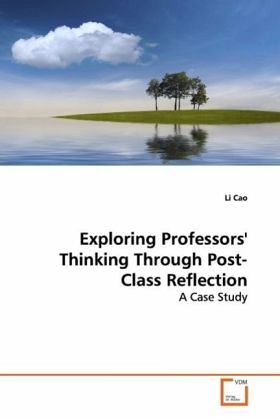
Exploring Professors' Thinking Through Post-Class Reflection
A Case Study
Versandkostenfrei!
Versandfertig in 6-10 Tagen
32,99 €
inkl. MwSt.

PAYBACK Punkte
16 °P sammeln!
The topic of teacher reflection has gainedsubstantial attention in the education literature.Yet, teachers' reflective processes have not beenwell understood. This study explored characteristicsof professors' post-class reflection. Eightprofessors--representing two levels of teachingexperience, teaching a lecture or seminarundergraduate class in humanities orengineering--participated in this case study.Interviews, classroom observations, and instructionalplans and materials comprised the data sources.Findings show that professors' post-class reflectionbecame a routine: it happened at different ...
The topic of teacher reflection has gained
substantial attention in the education literature.
Yet, teachers' reflective processes have not been
well understood. This study explored characteristics
of professors' post-class reflection. Eight
professors--representing two levels of teaching
experience, teaching a lecture or seminar
undergraduate class in humanities or
engineering--participated in this case study.
Interviews, classroom observations, and instructional
plans and materials comprised the data sources.
Findings show that professors' post-class reflection
became a routine: it happened at different points of
time, mostly right after the class, and as a
continuous process. Their reflection involved a
mixture of having intuitive feelings about the class
as well as thinking logically about how the class
unfolded. Based on the results, a conceptual
framework is proposed that describes professors'
post-class reflection as interrelated with rational
and non-rational information processing. The study
contributes to a better understanding of the complex
process of teacher thinking and informs the design of
faculty development interventions that aim at
promoting reflective practice.
substantial attention in the education literature.
Yet, teachers' reflective processes have not been
well understood. This study explored characteristics
of professors' post-class reflection. Eight
professors--representing two levels of teaching
experience, teaching a lecture or seminar
undergraduate class in humanities or
engineering--participated in this case study.
Interviews, classroom observations, and instructional
plans and materials comprised the data sources.
Findings show that professors' post-class reflection
became a routine: it happened at different points of
time, mostly right after the class, and as a
continuous process. Their reflection involved a
mixture of having intuitive feelings about the class
as well as thinking logically about how the class
unfolded. Based on the results, a conceptual
framework is proposed that describes professors'
post-class reflection as interrelated with rational
and non-rational information processing. The study
contributes to a better understanding of the complex
process of teacher thinking and informs the design of
faculty development interventions that aim at
promoting reflective practice.



